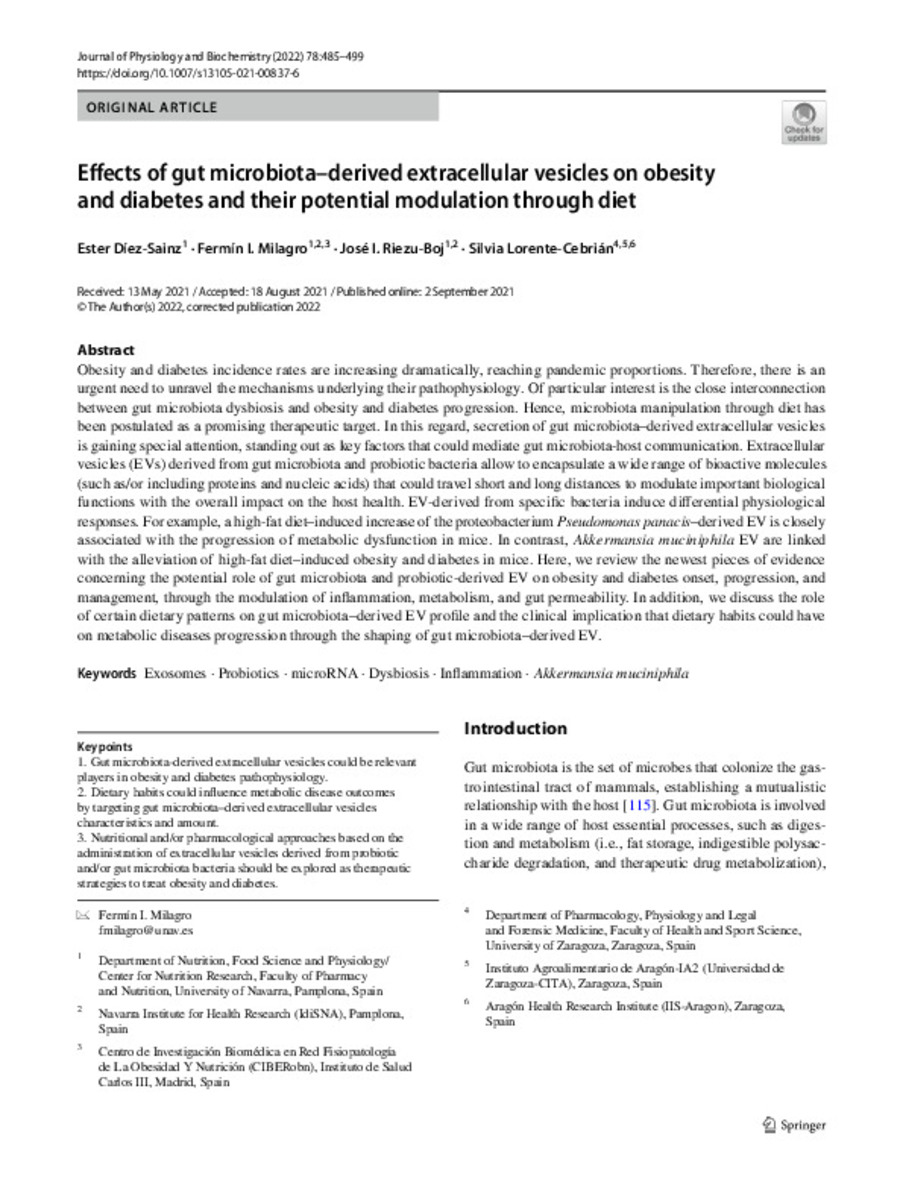Effects of gut microbiota–derived extracellular vesicles on obesity and diabetes and their potential modulation through diet
Keywords:
Exosomes
Probiotics
MicroRNA
Dysbiosis
Inflammation
Akkermansia muciniphila
Note:
This article is licensed under a Creative Commons Attribution 4.0 International License
Citation:
Díez-Sainz, E. (Ester); Milagro, F.I. (Fermín I); Riezu-Boj, J.I. (José Ignacio); et al. "Effects of gut microbiota–derived extracellular vesicles on obesity and diabetes and their potential modulation through diet". Journal of Physiology and Biochemistry. (78), 2022, 485 - 499
Statistics and impact
0 citas en

0 citas en

Items in Dadun are protected by copyright, with all rights reserved, unless otherwise indicated.









